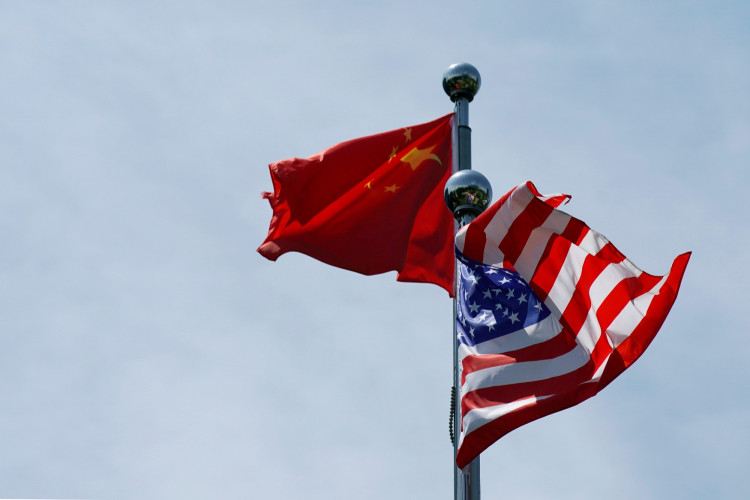China escalated its criticism of the United States after President Donald Trump called for NATO countries to halt Russian oil purchases and impose heavy tariffs on Beijing, deepening tensions just as senior Chinese and U.S. officials entered a second day of talks in Madrid.
China's Commerce Ministry on Monday condemned Washington's request for G7 and NATO allies to impose secondary tariffs on Chinese imports, calling it "a classic example of unilateral bullying and economic coercion." The ministry urged the U.S. to be "prudent in words and deeds" and said differences should be resolved through "equal dialogue."
Trump, in a Saturday letter to NATO allies, pressed members to stop buying Russian oil and to place "50 to 100 per cent tariffs on China for its purchases of Russian petroleum." He wrote that NATO's commitment "to WIN" the war in Ukraine "has been far less than 100%" and argued that Russian oil purchases were "shocking" and "greatly weaken your negotiating position, and bargaining power, over Russia."
Beijing's foreign minister Wang Yi swiftly pushed back, telling reporters in Ljubljana, Slovenia, that China "doesn't participate in wars or plot them" and warned that sanctions "only complicate" conflicts. His comments came as NATO members - including Turkey, Hungary, and Slovakia - faced scrutiny for continuing Russian oil imports, with Turkey ranking as the third-largest buyer after China and India, according to the Centre for Research on Energy and Clean Air.
The Madrid talks between U.S. Trade Representative Jamieson Greer and Chinese negotiators are focused on tariffs, technology restrictions, and U.S. calls for ByteDance to divest TikTok. The negotiations follow a fragile tariff truce reached earlier this year that scaled back duties to 30% on Chinese goods and 10% on U.S. goods, averting near-total shutdowns of bilateral trade.
Tensions widened Monday when China's market regulator announced a preliminary probe finding that U.S. chipmaker Nvidia had violated the country's anti-monopoly law, adding to the list of contentious issues.
Trump's letter comes amid a tense phase of the war in Ukraine. Last week, multiple Russian drones entered Polish airspace before being shot down with NATO support. Trump played down the incident, saying it "could have been a mistake," but reiterated his belief that coordinated sanctions could force an end to the war.
U.S. allies are signaling willingness to tighten pressure on Moscow. Britain on Friday banned 70 vessels tied to Russian oil transport and sanctioned 30 individuals and companies - including some in China and Turkey - accused of supplying Russia with war materials. Canadian Finance Minister François-Philippe Champagne said G7 finance ministers had a "productive" meeting on Friday and vowed "more discussions and steps" to "exert maximal pressure on Russia" in coming weeks.






